Nepal Under Fire in Chinese Digital Media for Requesting $216 Million Loan Waiver on Pokhara Airport
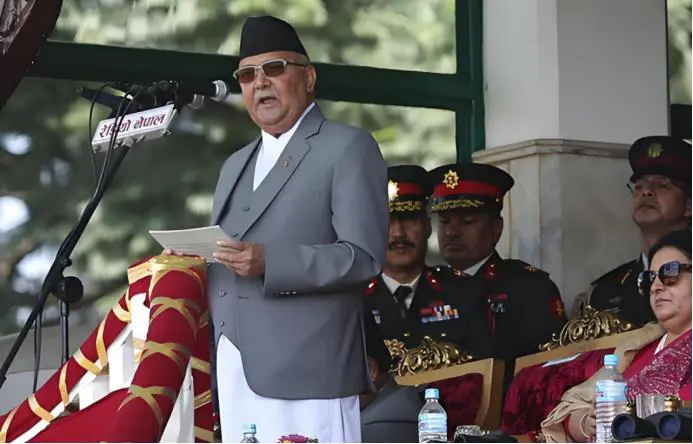
Nepal's recent request to China for a waiver on the $216 million loan used to construct the Pokhara International Airport has sparked a significant backlash in Chinese digital media. Several platforms have launched a campaign accusing Nepal of trying to evade its financial obligations, with articles highlighting the alleged irresponsibility and opportunism of the Nepali government.
The airport, built under the Belt and Road Initiative (BRI) with a loan from China, was intended to be a major infrastructure project to boost Nepal’s economic and tourism sectors. However, it has struggled since its completion. In January 2023, just weeks after opening, the airport faced tragedy when a domestic flight crashed into a nearby river gorge, killing 72 people. Since then, it has failed to attract significant international traffic, compounding financial pressures.
"Nepal Wants to Swallow Up the Loan": Sarcasm and Scorn
An article from Sina.cn sharply criticizes Nepal’s move, accusing the new government of attempting to exploit China’s financial resources. The article sarcastically questions, "Do you really think we are the suckers?"—a sentiment reflecting growing Chinese frustration. It argues that Nepal wants to "swallow up" the 216 million yuan loan without offering anything in return. The piece warns that China does not want to repeat the mistakes of the Soviet Union, implying a fear of being drawn into economically unsustainable partnerships.
Another article from QQ.com claims Nepal’s demands are unreasonable, particularly in light of the airport's poor performance. It points out that the airport's low international traffic and unresolved technical issues make it a poor investment. The report highlights how the project has not yielded the expected economic benefits and criticizes Nepal for its failure to take responsibility for the debt.
Chinese Frustration with Nepal’s Geopolitical Strategy
Chinese commentators have also raised concerns that Nepal’s debt waiver request may be a tactic to pivot away from China’s influence. Some argue that the new coalition government, led by Nepal’s largest communist party, is pushing for closer ties with China while seeking to sidestep financial responsibilities. The situation is portrayed as Nepal attempting to exploit its geopolitical position between India and China to gain economic concessions from both sides.
Articles from Sohu and 163.com further criticize Nepal’s request, arguing that China should not reward what they describe as financial irresponsibility. They frame the Pokhara Airport as a project with major flaws, emphasizing that Nepal’s new government should address internal mismanagement before seeking debt forgiveness. These reports suggest that China should adopt a more stringent approach to its financial engagements with smaller countries like Nepal.
A Test for China's Foreign Policy
Many Chinese commentators see Nepal’s loan waiver request as a critical test for Beijing's international influence, particularly under the Belt and Road Initiative. The request has sparked fears within China that forgiving the loan could set a dangerous precedent, encouraging other countries to follow suit and demand debt relief. Some articles emphasize that China cannot afford to be seen as overly lenient, especially at a time when it is trying to expand its geopolitical reach through strategic infrastructure projects.
Others speculate that granting the waiver might weaken China’s leverage over Nepal. If Beijing agrees, it risks opening itself up to further demands from Nepal and other countries involved in BRI projects. On the other hand, rejecting the request could strain diplomatic relations, potentially pushing Nepal closer to India or other global powers seeking to counter China’s influence in the region.
Conclusion
The negative tone of Chinese media towards Nepal’s loan waiver request reflects deepening frustrations about the challenges facing the Belt and Road Initiative. As Nepal’s government presses forward with its request, China must navigate a delicate balance between maintaining diplomatic ties and protecting its financial interests.
Related Links to Articles:
- https://m.163.com/dy/article/JBQKTM130511F2MA.html?spss=adap_pc
- https://m.163.com/dy/article/JBLGV3VE0532IG7I.html?spss=adap_pc
- https://m.sohu.com/a/805278731_121697496/?pvid=000115_3w_a
- https://view.inews.qq.com/k/20240831A00HOD00?web_channel=wap&openApp=false
- https://finance.sina.cn/2024-09-01/detail-incmraiw2475710.d.html?cre=blogpagepc&mod=f&loc=16&r=0&rfunc=5&tj=cxvertical_pc_blogpagepc_f&pagetype=alios
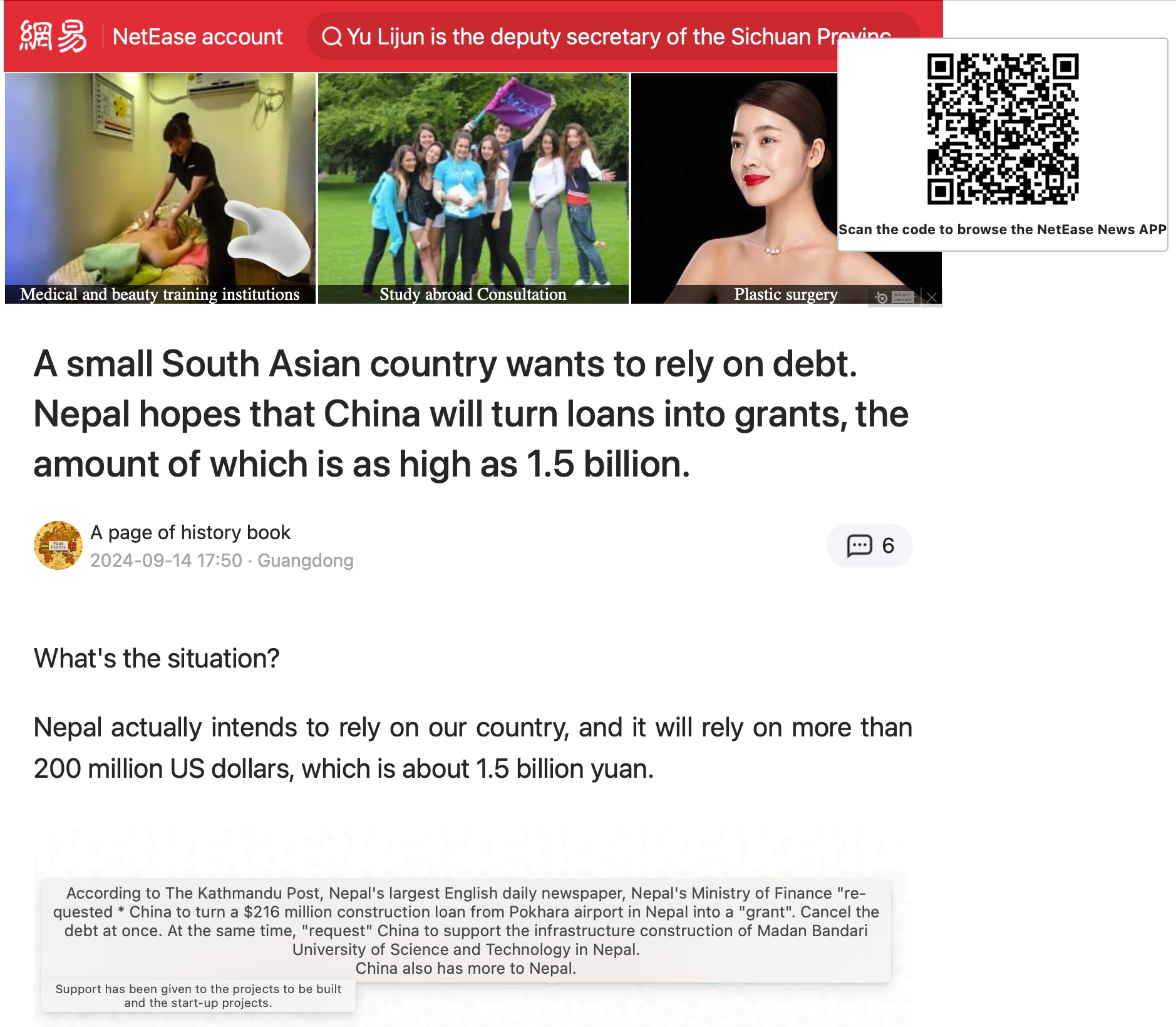
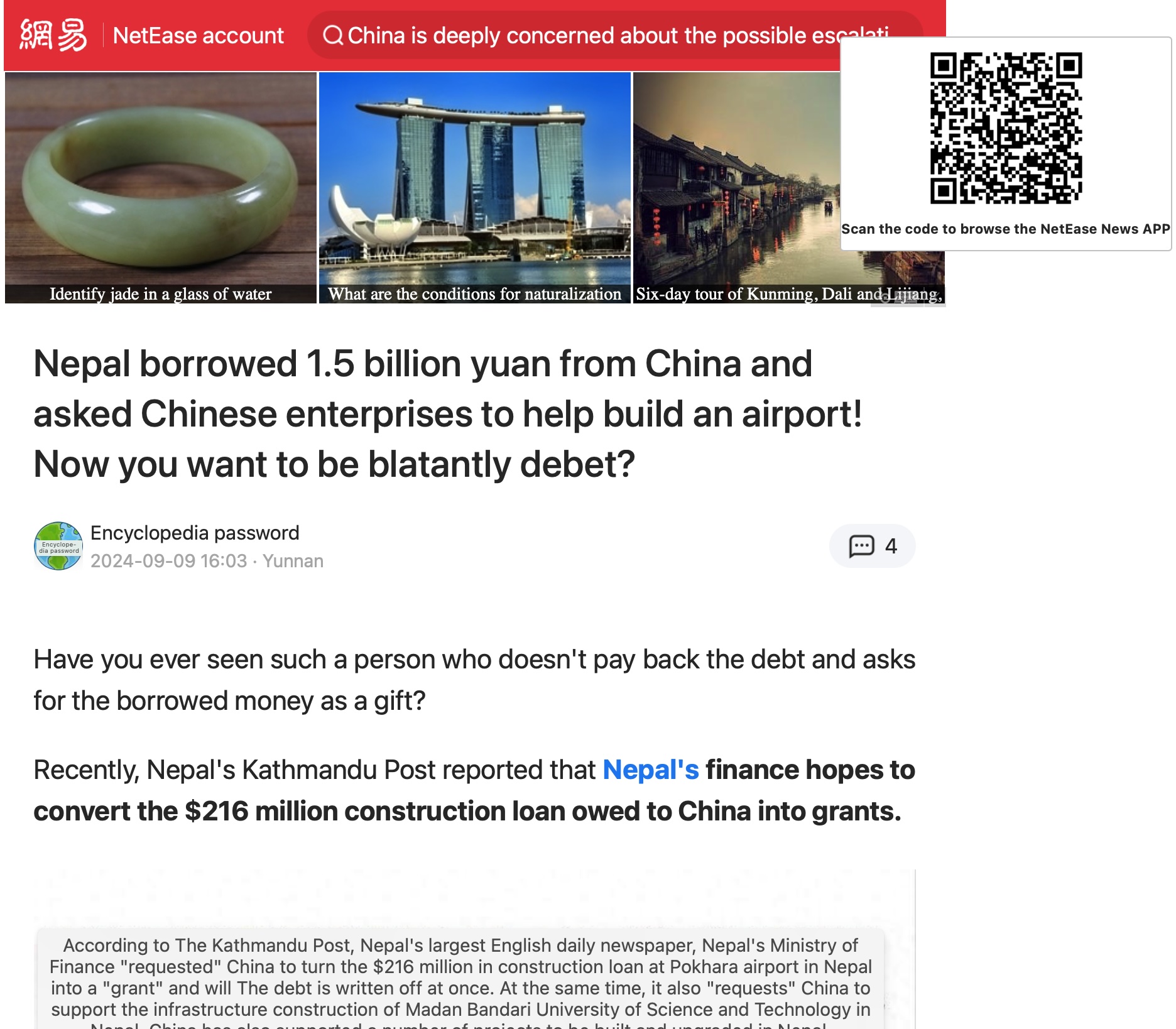
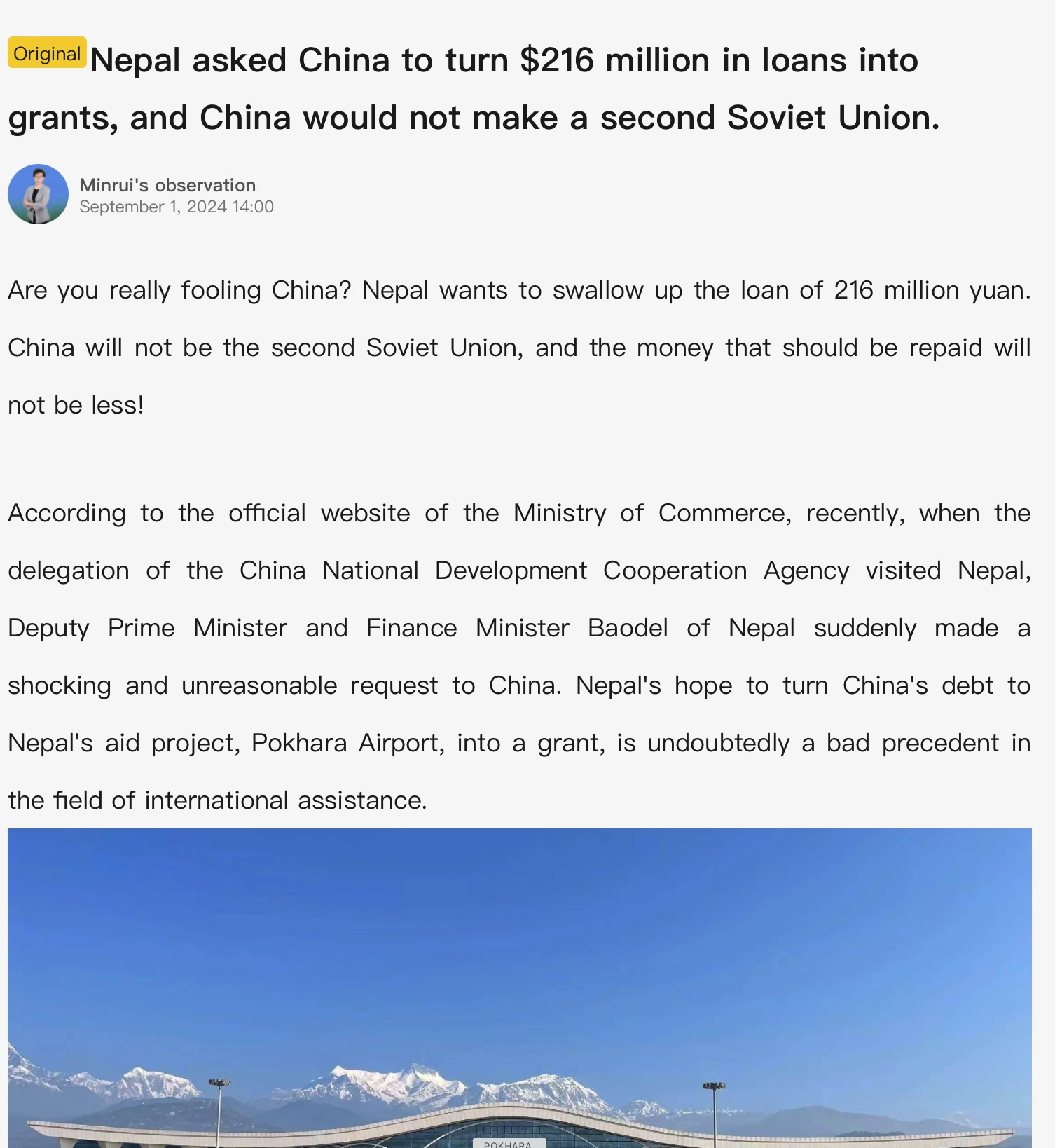
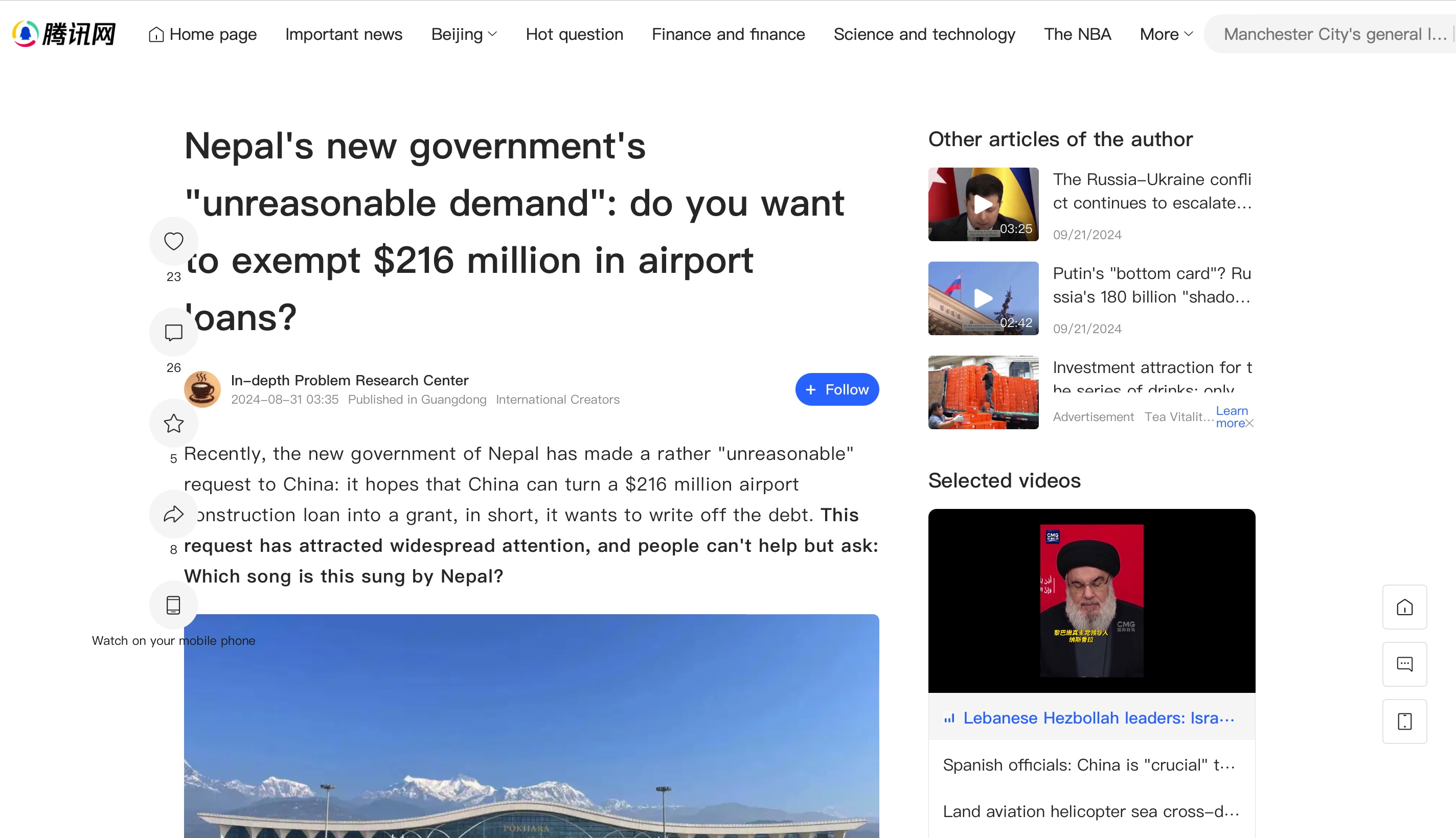
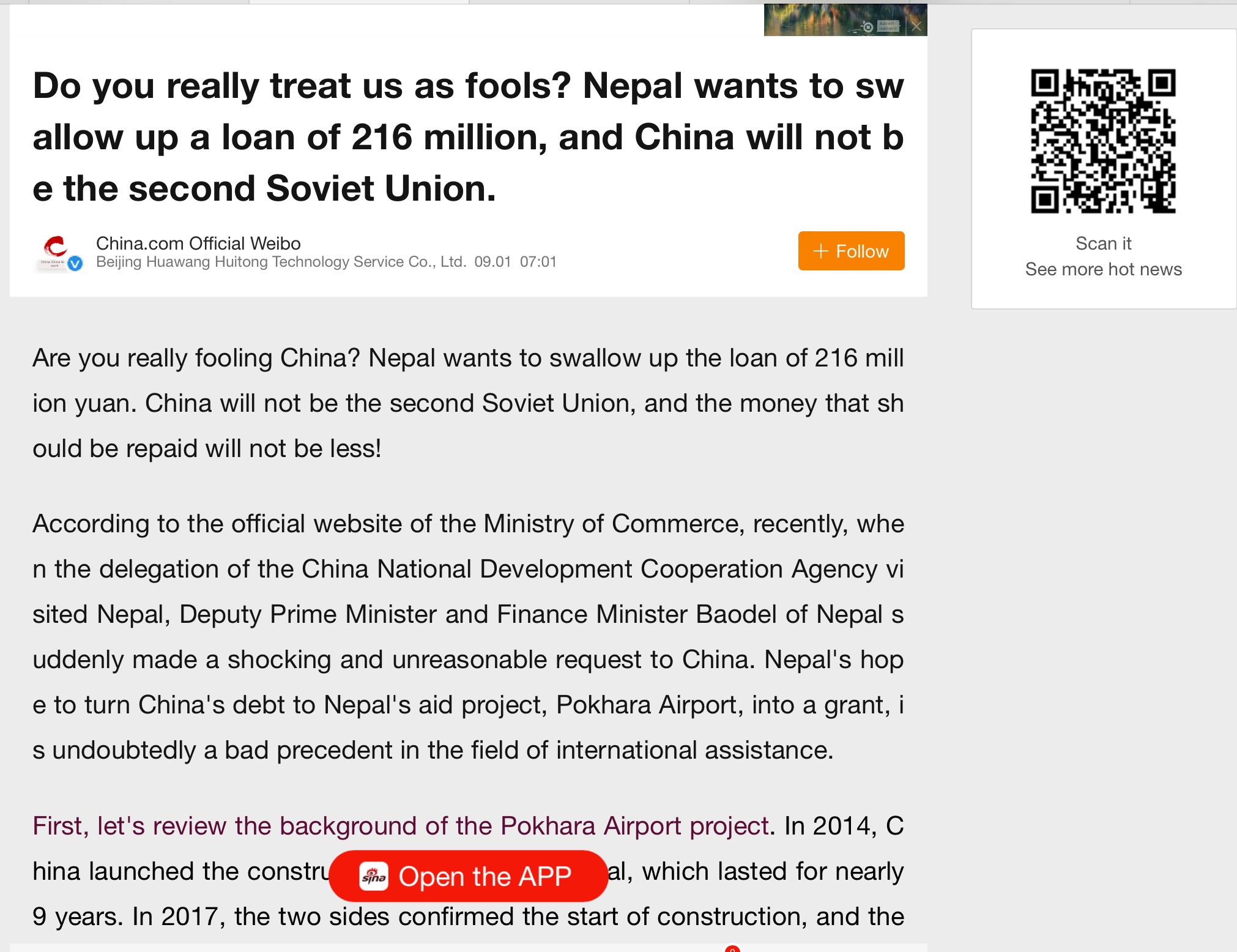
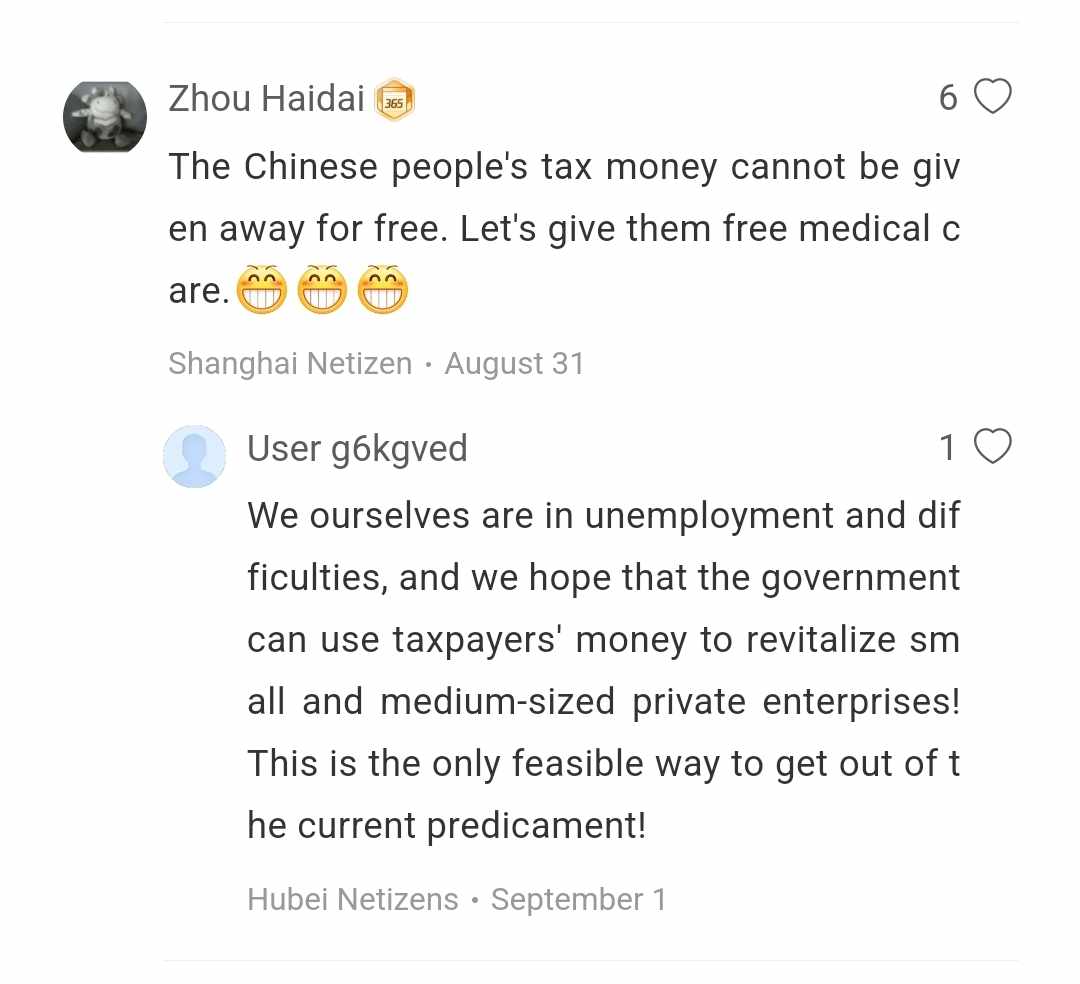




![From Kathmandu to the World: How Excel Students Are Winning Big [Admission Open]](https://nepalaaja.com/img/70194/medium/excel-college-info-eng-nep-2342.jpg)
